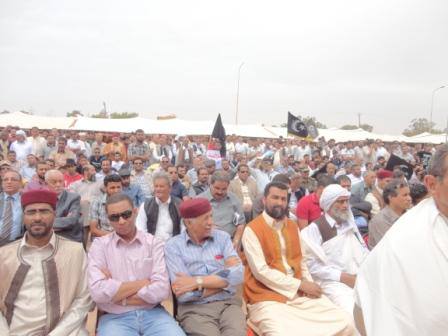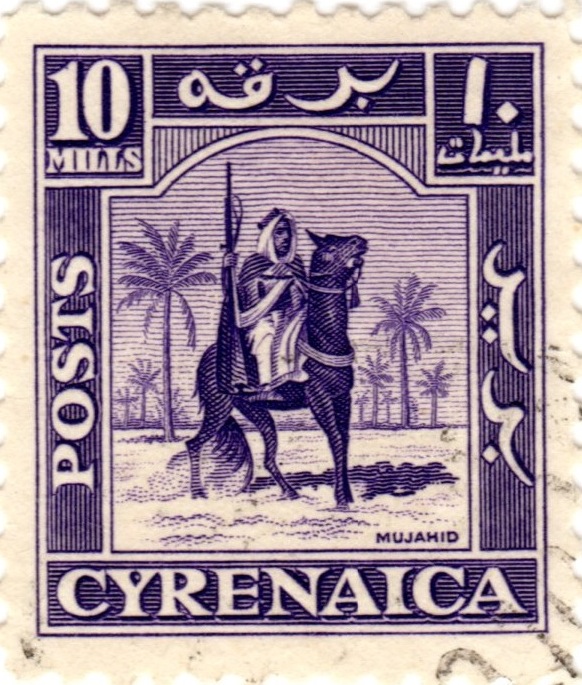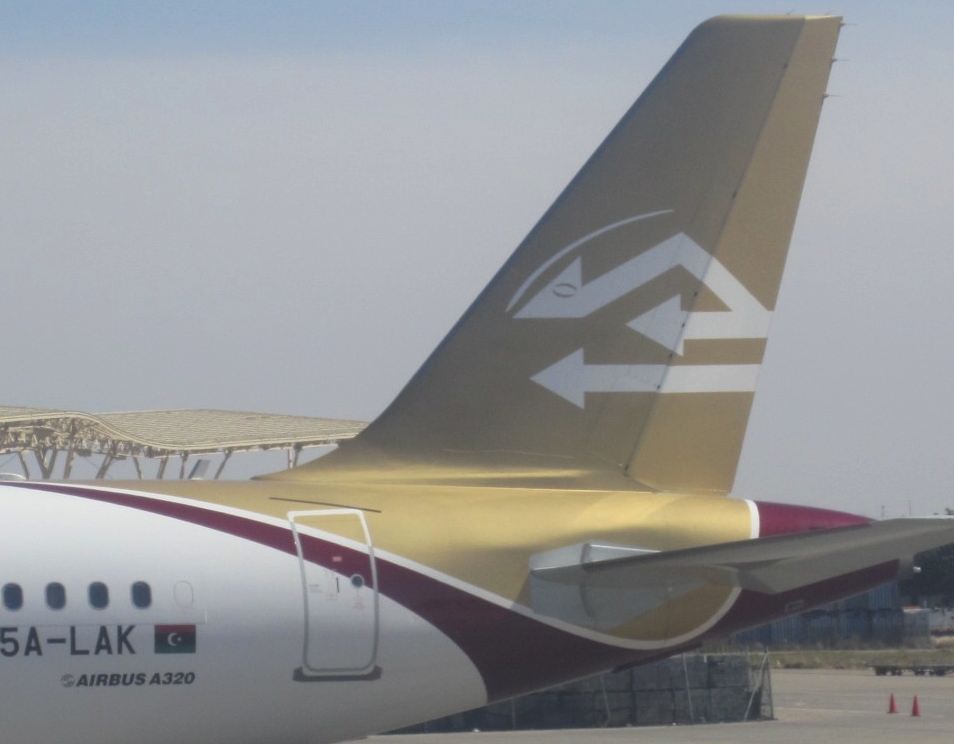By Ahmed Ruhayam.

Several thousand Cyrenaican supporters of federalism attended a major rally in Marj today at which Sheikh . . .[restrict]Ahmed Zubair Senussi, head of the Cyrenaica Transitional Council, declared Cyrenaican self-government. “Cyrenaica is a federal territory within the framework of the Libyan state and as of this day June 01 2013 will start to run its own affairs,” he declared at the event, designed to commemorate the 64th anniversary of the 1949 declaration of independence by the Emirate of Cyrenaica.
“Cyrenaica will activate Libya’s 1951 constitution, establish a Senate and Congress to form Cyrenaica’s Parliament, as well as a regional Government,” Zubair announced. He also called for the formation of a defense force to protect Cyrenaica.
In addition, he demanded that the General National Congress transfer funding for Cyrenaica to the Benghazi branch of the Central Bank as well as allocate budgets for Cyrenaican youth development and employment.
There were no bombings and assassinations in the east of the country and no forest fires in the Green Mountains while the NTC was based in Benghazi, he said. These only started after the move to Tripoli. He accused unnamed political forces based in the capital of targeting Cyrenaica because it did not follow their agendas.
According to Moammar Al-Arafi, in charge of the media committee for today’s rally, at least 6,700 people attended. There is no independent confirmation of the figure.
They did so, Arafi told the Libya Herald, in response to recent developments in western Libya – specifically the manner in which the Political Isolation Law was passed and the present uncertain political outlook for the country.
Support for federalism has steadily grown in eastern Libya over the past year as the government has struggled to cope with security and the public has become ever more impatient at the lack of political and economic progress.
Last month, senior a senior Cyrenaican figure closely linked to Zubair told the Libya Herald that because of the growing chaos in the country and the inability of the government to take decisive action, Cyrenaica would declare autonomy and get on with running itself, while awaiting the rest of the country to pull itself together.
Two weeks ago, 3,000 Cyrenaican leaders and community representatives met and decided to proclaim regional autonomy on 1 June 2013.
In his speech today, Zubair refered to the concerns about security in Tripoli and elsewhere. “The people of Cyrenaica will not wait for hostilities in Tripoli and Fezzan to end,” he said. In a reference to the Political Isolation Law, he also rejected any law passed at gunpoint.
He also attacked Congress for dismissing demands for federalism. “We asked the General National Congress officially to hold a referendum on federalism; they ignored our requests.”

Today’s rally got underway at 10.30 this morning when people started gathering in Marj. At around noon, Zubair arrived to open the event which began with a recitation from the Holy Quran and the National Anthem. There followed remarks by Yousef Ali, head of Marj’s council of elders.
The proclamation of self government by Zubair as head of the Cyrenaica Council formed in March last year included messages directed at the international community. The Council’s respected the rights of women and children, he said, praising the important role of women in Libya’s history and asserting that they would continue to play a major role in the country. Cyrenaica would also also focus on collecting in weapons and fighting corruption and terrorism.
“Federalism was attacked furiously by the media and some respected political leaders when Cyrenaica first expressed its desire for a federal state,” said Faraj el-Kezza, General Secretary for the Democratic Union Party who attended the ceremony. But views were changing, he stated.
A recent national survey conducted by the University of Benghazi
Research and Consulting Centre, sponsored by the GNC and the government, showed contradictory views, he said.
“Although the survey shows that only eight percent of Libyans want a federal state, the survey also shows that 47 percent are in favour of limited local legislative and executive powers. Also, 36 percent are in favour of extensive local legislative powers and 48 percent in favor of extensive local executive powers. By any definition, this says that the Libyan people are seeking a federal state.”
El-Kezza added: “The Libyan people want to run their lives, which means managing their futures, planning and developing their regions and economies.”
Whether today’s event is just another declaration or a more significant departure remains to be seen.
The 1 June 1949 declaration of independence by Cyrenaica followed negotiations by the Emir, Idris Al-Senussi, later King Idris, and the British military forces which had run the province after expelling the Italian colonial authorities in 1943. In fact, Cyrenaica was not fully “independent” and the British continued to control aspects of its government. The Emirate then joined with British-administered Tripolitania and French-administered Fezzan to form the fully independent Kingdom of Libya in 1951.









